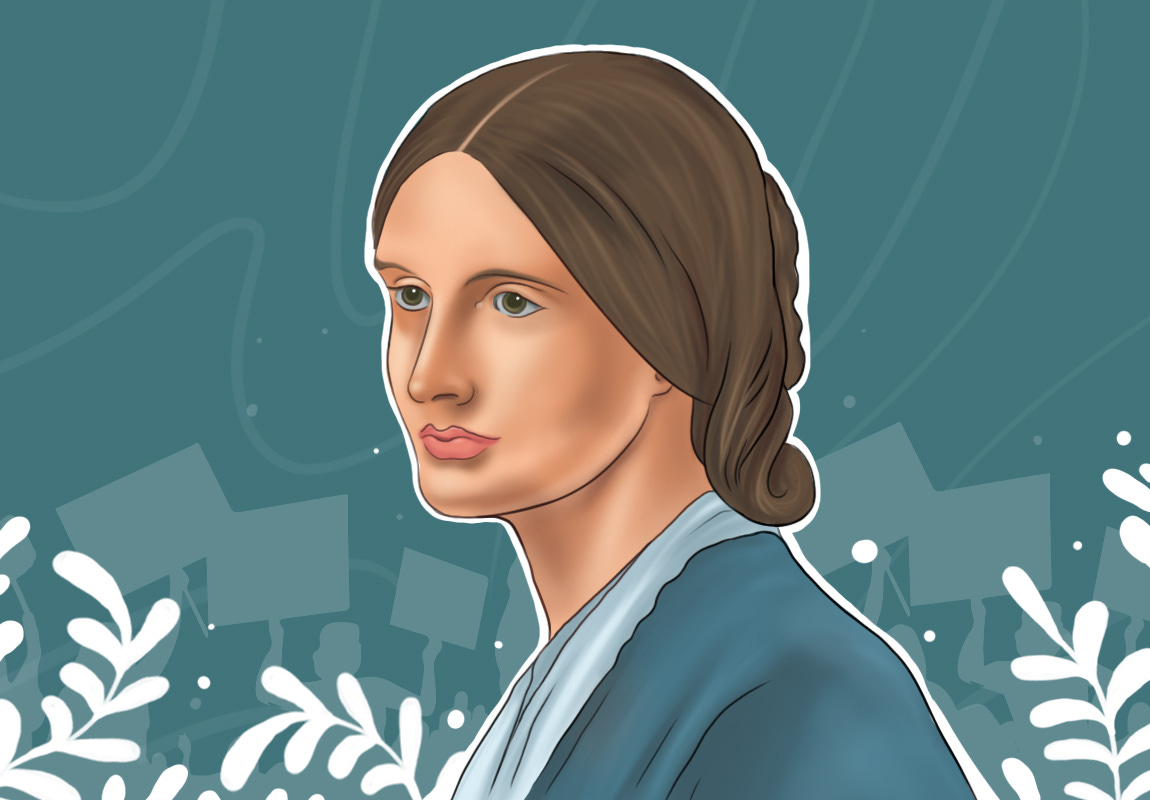Josephine Elizabeth Butler was a Victorian feminist and activist who played a major role in improving conditions for women in health care and education.
Josephine Butler was born on April 13, 1828, in Millfield, Northumberland in England. She was the seventh of nine surviving children of John Gray and Hannah Annett. Her father, John Grey, was a social reformer and a prominent figure in the campaigns against the slave trade. He was the relative of Lord Grey who was the Whig Prime Minister between 1830 and 1834.
Having been born into a liberal family, Josephine Butler learnt early about the horrors of slavery. Her family were members of the Church of England and strong supporters of the anti-slavery campaign. She heard terrible stories of female slaves made pregnant by their masters and forced to abandon their babies. This aroused feminist instincts in Josephine Butler, but she received only a few years of formal education. With her siblings, she was educated at home by their mother.
Butler was strongly influenced by the political ideologies of her father and the religious teaching she received from her mother. Even though she had only a few years of formal education, she was a prolific writer of books and pamphlets. She also became a prolific speaker of French and Italian.
In 1850, Josephine Butler met George Butler, a classics lecturer at Durham University, England. The couple fell in love and got married in 1852. They had a happy relationship. George Butler viewed her as an equal at a time, the Victorian period, when it was unheard of. In his letter to Josephine during their engagement, George Butler wrote about “…a perfectly equal union, with absolute freedom on both sides for personal initiative in thought and action.” The couple had four children, but they lost two of them at a young age. In 1866, they moved to Liverpool.
In 1869, Butler started campaigns against the Contagious Disease Acts.
In Liverpool, Josephine Butler started to work towards her dream that women at every level of society deserved to be treated with greater respect. In 1866, she became president of the North of England Council for the Higher Education of Women and helped establish the first university-level lectures in the North of England. She was also involved in the campaigns to make marriage laws fairer to women.
In 1869, Butler started campaigns against the Contagious Disease Acts. These Acts were introduced in the 1860s to reduce venereal disease in the armed forces. According to this Act, police were permitted to arrest and detain women living in seaports and military towns who were suspected to be prostitutes. The police forcefully examined them for venereal disease. The examination was carried out using a speculum inserted forcibly into the vagina. Women who suffered this pain described it to Josephine as “instrumental rape”. Butler realised the infringement of the civil rights of all women as the police had the authority to detain legally any women if they were labelled prostitutes.
Butler agreed to take up the position of the secretary of the Ladies National Association for Repeal of the Contagious Diseases Acts. She knew that it could cost her family life, her health and respectability. At that time, according to the Victorian morality, it was unacceptable for a Victorian woman to speak publicly on a taboo subject.
Butler’s attention also turned abroad as she visited France, Italy and Switzerland and spoke about the problem of under-age prostitution and licensed houses.
Butler travelled across the country delivering speeches condemning the Acts. She went on the campaigns, petition-gathering and nationwide speaking until the Acts were repealed in 1886.
To fight against the state regulation of prostitution and the fight against international trafficking of women, she helped found the International Abolitionist Federation (IAF) in Liverpool in 1875. The federation was originally called the British and Continental Federation for the Abolition of Prostitution.
Butler’s attention also turned abroad as she visited France, Italy and Switzerland and spoke about the problem of under-age prostitution and licensed houses. This paved the way for the founding of a committee for the suppression of ‘white slave traffic’ in London.
Butler was also interested in women’s education. She relentlessly pressured the Cambridge University authorities to provide more education courses for women. This eventually led to the founding of the all-women college at Newnham. Her most famous work as an author, Personal Reminiscences of a Great Crusade, was written in 1896.
Josephine Butler passed away on December 30, 1906, in Wooler, Northumberland.
Thank you for listening. Subscribe to The Scando Review on thescandoreview.com.
Happy Teaching!














Josephine Butler: Victorian era’s brave champion of women’s rights